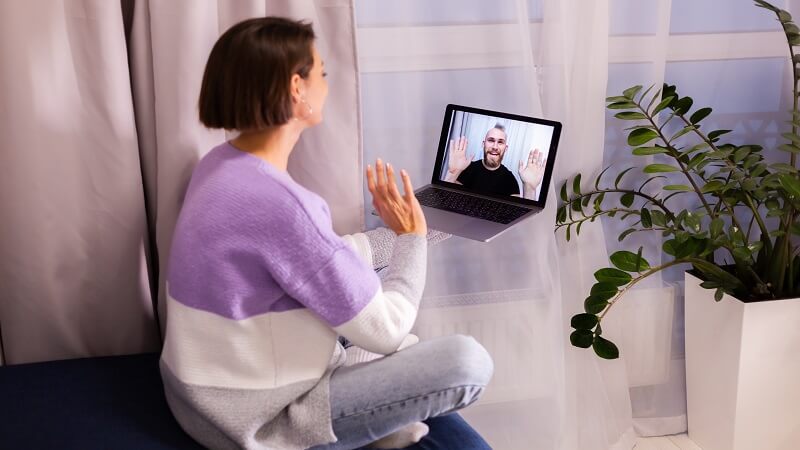In recent years, the landscape of mental health care has transformed dramatically, particularly with the rise of online counselling. This innovative approach allows individuals to access professional support from the comfort of their homes, breaking down geographical and social barriers. As the world becomes increasingly connected, online therapy sessions are emerging as a crucial resource for those seekingmental health support. This blog explores the significance of online counselling and how it has revolutionized access to mental health services in India.
Understanding Online Counselling
Online counselling refers to therapeutic services delivered via the internet. This can include various formats, such as video calls, phone sessions, and text-based chat. Online counselling provides a convenient option for individuals who may find it challenging to attend in-person appointments due to time constraints, mobility issues, or mental health challenges like anxiety or depression.
The Importance of Accessibility
One of the most significant advantages of online counselling is its accessibility. Traditional therapy often requires travel, which can be a barrier for many. Whether it’s individuals living in remote areas or those with disabilities, online counselling Sessions ensures that everyone has the opportunity to receive help. With just a device and an internet connection, users can connect with an online counsellor who meets their specific needs.
Breaking Stigmas
Mental health stigma is a persistent issue in many cultures, including India. Many individuals hesitate to seek help due to societal pressures or fear of judgment. Online counselling offers a level of anonymity that can help reduce this stigma. Individuals can reach out for help without the fear of being seen entering a therapist’s office, making it easier to take that crucial first step towards healing.
Personalization of Therapy
Another significant benefit of online counselling is the ability to match clients with therapists who specialize in their specific issues. Online platforms often provide extensive profiles of therapists, allowing clients to select a professional who aligns with their needs and preferences. This tailored approach can enhance the therapeutic experience, leading to better outcomes.
Cost-Effectiveness
Traditional therapy can be expensive, and many people find it challenging to afford regular sessions. Online counselling often comes at a lower cost, making it a more viable option for those on a budget. Furthermore, the elimination of travel costs makes online therapy sessions even more economical, ensuring that mental health support is accessible to a broader audience.
Overcoming Barriers to Communication
For some, discussing personal issues can be daunting. Online counselling provides an environment where individuals may feel more comfortable expressing their feelings. The virtual format allows for a level of detachment that can ease anxiety, leading to more open and honest conversations. This can be particularly beneficial for younger generations, who are often more accustomed to digital communication.
Evidence-Based Practices
Many online therapists utilize evidence-based practices, ensuring that clients receive high-quality care. Approaches such as Cognitive Behavioral Therapy (CBT) and Dialectical Behavior Therapy (DBT) are often incorporated into online sessions. Clients can benefit from the same level of expertise and professionalism they would receive in traditional therapy settings.
The Future of Online Counselling
As technology continues to evolve, the potential for online counselling to reach more people grows exponentially. Advances in telehealth and mental health technologies will likely improve the accessibility and effectiveness of these services. As mental health awareness increases, online counselling will play a vital role in fostering a supportive environment for those in need.
Conclusion
Online counselling marks a new era in the field of mental health care. By breaking down barriers and making therapy more accessible, it empowers individuals to seek the help they need without the constraints of traditional methods. As we embrace this change, it’s crucial to recognize the significance of mental health and the role online counselling plays in fostering well-being.
FAQs
What are online therapy sessions? Online therapy sessions are therapeutic appointments conducted over the internet, allowing clients to engage with mental health professionals through video, audio, or text-based formats.
How effective is online counselling compared to in-person therapy? Research shows that online counselling can be as effective as in-person therapy for many individuals, particularly for issues like anxiety and depression.
Can I trust an online counsellor? Yes, many online counsellors are licensed professionals with credentials comparable to those in traditional settings. It’s essential to choose a reputable platform and verify the counsellor’s qualifications.
What technology do I need for online counselling? Generally, you will need a device (computer, tablet, or smartphone) with a stable internet connection, a webcam (for video sessions), and a quiet space for your appointments.
Is online therapy suitable for everyone? While online therapy can be beneficial for many, it’s essential to consider individual preferences and needs. Some may prefer face-to-face interaction, especially for specific types of therapy. However, for many, online counselling offers a valuable alternative.
